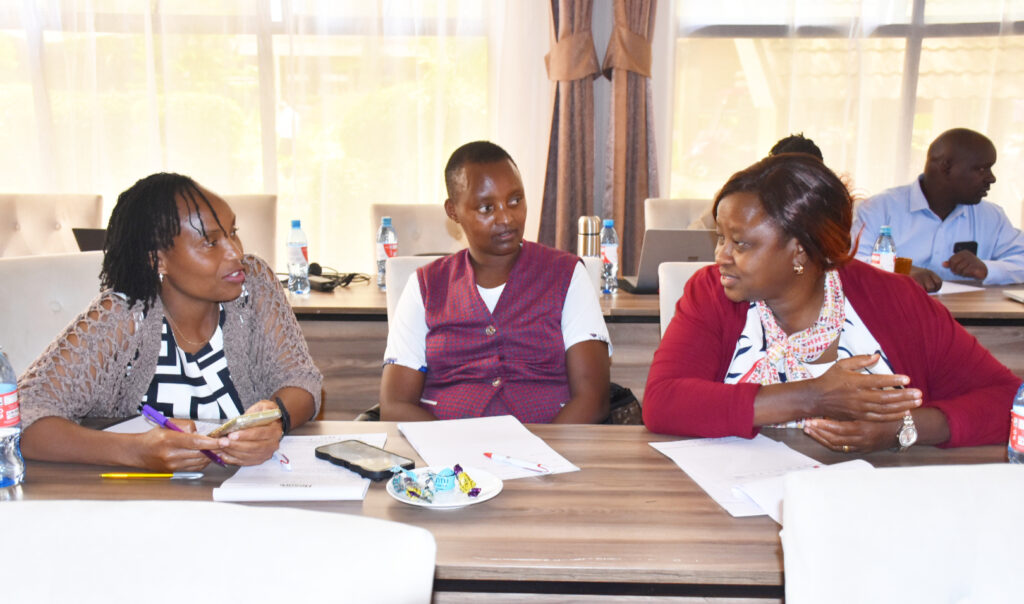
CONCEPT NOTE
INTERNATIONAL TRAINING ON NEGOTIATION AND LOBBYING
COURSE BACKGROUND
In today’s complex and interconnected world, the ability to effectively negotiate and lobby is essential for professionals aiming to drive meaningful change and achieve organizational objectives. Recognizing this need, the Environmental Capacities and Sustainability (ECAS) Institute offers the Negotiation and Lobbying Course, meticulously designed to equip participants with the theoretical knowledge and practical skills necessary to excel in these critical areas.
This comprehensive program delves into the foundational principles of negotiation and lobbying, emphasizing their significance in public affairs and policy-making. Participants will explore various theoretical models and real-world applications, gaining insights into conflict resolution, diplomatic mediation, and international arbitration across diverse sectors, including military, financial, governance, social policy, and environmental matters. Through a blend of interactive lectures, case studies, and simulation exercises, the course fosters an environment where theoretical concepts are actively applied, enhancing both understanding and proficiency.
A distinctive feature of the course is its focus on experiential learning. Participants engage in weekly negotiations and online simulations, addressing real-life political issues to bridge the gap between theory and practice. This hands-on approach not only hones practical skills but also encourages self-reflection and critical evaluation, enabling participants to assess their performance and identify areas for improvement. By the end of the program, attendees will have developed a robust skill set, empowering them to navigate complex negotiations and lobbying efforts effectively, thereby contributing to the advancement of their organizations and the broader community.
OBJECTIVES OF THE TRAINING
The key objectives are:
- To develop a comprehensive understanding of negotiation strategies to reach mutually beneficial agreements.
- To learn to design and implement effective lobbying campaigns that influence policy decisions.
- To gain insights into the structures and processes of policy-making to identify opportunities for advocacy.
- To cultivate the ability to establish and maintain relationships with key stakeholders and decision-makers.
- To incorporate ethical principles in negotiation and lobbying efforts to promote integrity and accountability.
WHAT YOU WILL LEARN
Upon completion of this comprehensive course participants will have a clear understanding of:
- Techniques for preparing and conducting negotiations that achieve desired outcomes.
- Methods to effectively present issues to policymakers and advocate for change.
- Strategies for persuasive communication tailored to diverse audiences.
- Tools to identify and assess key stakeholders to build strategic alliances.
- Guidelines to ensure ethical conduct in negotiation and lobbying activities.
DURATION AND PROGRAM
TARGET PARTICIPANTS
The Negotiation and Lobbying Course at the Environmental Capacities and Sustainability (ECAS) Institute is meticulously designed for professionals across various sectors who are keen to enhance their negotiation and lobbying skills to drive meaningful change and achieve organizational objectives. This course is particularly beneficial for policy makers, advocacy officers, non-governmental organization (NGO) staff, corporate affairs managers, public relations professionals, and community leaders. Participants will gain practical insights into negotiation strategies, effective lobbying techniques, and ethical considerations, enabling them to navigate complex discussions, influence policy decisions, and build strategic alliances. By the end of the program, attendees will be equipped with the tools and confidence to advocate for their causes and contribute to the development of equitable and sustainable solutions.
TRAINING MODULES
The Negotiation and Lobbying Course at the Environmental Capacities and Sustainability (ECAS) Institute is structured into five comprehensive modules, each designed to equip participants with the knowledge and skills necessary to excel in negotiation and lobbying within various contexts.
| No | Module | Details | |
| 1. | Foundations of Negotiation and Lobbying |
|
|
| 2. | Negotiation Strategies and Tactics |
|
|
| 3. | Lobbying Frameworks and Techniques |
|
|
| 4. | Stakeholder Mapping and Engagement |
|
|
|
5.
|
Ethics and Professionalism in Advocacy |
|
|
TRAINING STYLE
The Negotiation and Lobbying Course at the Environmental Capacities and Sustainability (ECAS) Institute employs a variety of training styles to ensure a comprehensive and engaging learning experience. Interactive Lectures provide foundational knowledge through dynamic presentations, encouraging active participation and discussion. Case Studies offer real-world scenarios for analysis, allowing participants to apply theoretical concepts to practical situations. Group Discussions facilitate the exchange of ideas and experiences among peers, enhancing collaborative learning. Role-Playing Exercises simulate negotiation and lobbying scenarios, enabling participants to practice and refine their skills in a controlled environment. Workshops focus on developing specific competencies through hands-on activities and guided instruction. Self-Assessment Tools help individuals identify their strengths and areas for improvement, fostering personal development. Panel Discussions with industry experts provide diverse perspectives on negotiation and lobbying challenges and best practices. By integrating these diverse methods, the course aims to equip participants with the knowledge and skills necessary to effectively negotiate agreements and influence policy decisions.
GENERAL NOTES
- Training manuals and additional reference materials are provided to the participants.
- Upon successful completion of this course, participants will be issued with a certificate.
- We can also do this as a tailor-made course to meet organization-wide needs. Contact us to find out more: info@ecasiafrica.org.
- Payment should be sent to our bank account before the start of training and proof of payment sent to: info@ecasiafrica.org.
ABOUT ECAS INSTITUTE
The ECAS Institute designs and delivers independent and targeted training, research, and consulting services. Our work focusses on climate change and resilience building, carbon markets, renewable energy, nature-based solution, biodiversity conservation, agriculture and food systems, We are located in Nairobi Kenya and work across the African region. We have implemented training and research assignments in Kenya, Tanzania, Uganda, South Sudan, Somalia, Malawi, Rwanda, Congo, and South Africa. Globally, we have supported our partners from the UK, Denmark, Italy, Sweden, Germany, and USA.

